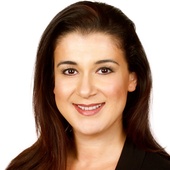Let's demystify these "points" you hear about in every mortgage commercial you see or read. Points are a type of fee borrowers typically pay up front in connection with obtaining a loan. One point (short for "percentage point") is equal to 1 percent of the loan amount. For example, on a $150,000 loan, one point would cost $1,500. ($150,000 x .01)
Now there are two types of points: Origination Points and Discount Points. Origination points are charged in order to cover the lender's cost associated with issuing you the loan. The number of origination points charged may vary from lender to lender, and can sometimes be negotiable. The more difficult and time consuming issuing the loan is for the lender, the more you might pay. Discount points have a different purpose. They are designed to lower your interest rate. As a rule of thumb, paying one discount point will lower your interest rate by 0.25 percent on a fixed-rate mortgage. It will vary from loan to loan however. For example, a lender may offer you a mortgage with 6.50 percent interest rate and zero discount points, or 6.25 percent if you pay one discount point, or 6.00 percent if you pay 2 points, and so on. Furthermore, you can agree to pay points to lower the rate to something more agreeable. That is something you should also keep in mind especially if your closing costs are covered by the Seller or New Home Builder. Again, please note that this is just a general rule, and the actual cost of reducing the interest rate fluctuates with the market and type of loan.
Discount points can also be "negative." In the above example, 6.50 percent was the interest rate you would get if you opted to pay zero points. But if you agreed to a higher interest rate of 6.75 percent, then the lender would pay you one discount point. You would not receive this amount in cash, and you would not be able to use it toward the down payment, but you could use it toward your closing costs. This type of loan is often referred to as a "premium loan." The no-points and no-closing- cost loans you see advertised on TV and on the Net usually fall into this category. You pay a higher rate, but your closing costs are covered.
I recently showed homes in Chandler, Gilbert, and Queen Creek where the New Home Builder was paying for the buyer's entire closing costs. They offered such a large incentive that there is even money for the buyer to reduce the interest rate he is offered. If you have been thinking of buying but were told you couldn't buy, especially if you didn't have enough funds to cover your closing costs - give me a call. I will gladly explain any of the information I provided here and review your situation specifically to see if there is anything I can offer to help you. Not all agents and lenders are familiar with all the options out there for home buyers. In the Real Estate industry you really have to have the right people, who have knowledge and experience, to help guide the way.
Content, coding, marketing, host. - Marietta, GA
Content Marketer/Creator
Great post,Yalda. Let it be known that virtually every loan has what Yalda called "premium points." We call that Yield Spread Premium or YSP and it's usually about 1/2 of the oringation side's income. Loans under $250,000 for example generally require 2 points for brokers to "stay in business" so 1 point is usually origination and the other point comes from a .5 increase in the interest rate from PAR - also called the wholesale rate. Loans greater in value than say $250,000 usually see a lower percentage rate or points going to the broker. Most states require YSP to the broker to be disclosed on the HUD1 Settlement Statement but do not require the same disclosure for retail lenders or banks. The truth is retail lenders and banks make as much or mory YSP than brokers as was evidenced in the report released earlier this year through the NAR. Again Yalda did a good job explaining the basics and your mortgage professional will clarify the details for you.
Sep 11, 2006 11:13 AM

Comments(1)